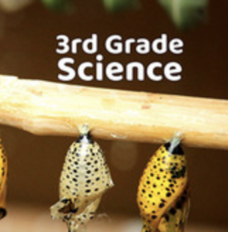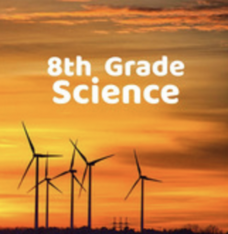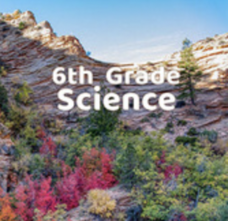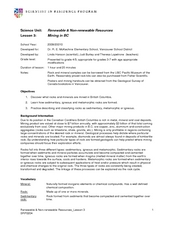Curated OER
This Mine of Mine
Students explore natural resources by conducting a geology experiment in class. In this mineral mining lesson, students discuss the types of geological material that can be found when mining and the uses for these resources such as coal....
Curated OER
Breaking it Down
High schoolers will identify the factors that contribute to erosion and weathering. They will start by differentiating between chemical and mechanical weathering. They then apply what they learned by playing the online jeopardy game. Key...
Science & Plants for Schools
Photosynthesis - A Survival Guide
Young scientists learn what it takes for life on Earth to survive with this series of photosynthesis resources. Offering twelve different activities ranging from independent practice worksheets to in depth scientific...
Weber State University
The Sun and the Seasons
Why is there more daylight in June than in December if you live above the equator? How does the angle of sunlight shift throughout the year? Answer these questions and more with an interactive article about the sun, its path through the...
NOAA
Ocean Waves
Surf's up! What causes the constant motion of Earth's oceans? Scholars discover the origins and types of waves in part nine of a 13-installment series. The resource illustrates wave behavior, their destructive power, and current research...
Curated OER
Gallery Walk Questions on Earth's Radiation Balance
Questions that can be used in a instructional activity on Earth's radiation balance are suggested in this resource. It is not a lesson plan, per se, but it is a list of questions for stations within a "Gallery Walk" instructional...
Curated OER
Living On Earth
Students discover the many different animals within various habitats and discover how each individual species interacts with its particular environment. Through charting different animals and their distinct habitat and matching animals...
It's About Time
The Sun and Its Effects on Your Community
Why is the sun round? Examine this question, and others, with your pupils while teaching them how to live in a more earth-friendly environment. Pupils explore Sun composition and discuss how solar wind, sunspots, and solar energy affects...
Utah Education Network (UEN)
Utah Open Textbook: 3rd Grade Science
How do we interact with Earth? Scholars learn about the sun, Earth, moon, forces, gravity, and heat sources by reading a text and performing hands-on demonstrations. They also differentiate between living and non-living things using...
It's About Time
The Electricity and Magnetism Connection
Magnets don't grow in fields, but magnetic fields are important to understand. The lesson covers the effect electricity has on magnetic fields. Scholars use a compass, magnets, and electrical wire to test magnetic fields and energy...
Utah Education Network (UEN)
Utah Open Textbook: 8th Grade Science
The cycle of energy is important to many different systems on Earth. Scholars use questioning and observation to investigate the differences between renewable and non-renewable resources and how they relate to global changes. They...
Utah Education Network (UEN)
Utah Open Textbook: 6th Grade Science
There are many interactions among living things and their surroundings. By completing a reading, scholars learn about the Earth, the moon, and the sun and how they relate to the solar system. They also investigate the basics of physical...
Curated OER
Integrating Chemistry-Chemical Reactions
In this chemical reactions worksheet, students read about different types of chemical reactions, potential and chemical energy. They answer three questions about their reading.
Curated OER
A Day In My Life
Students brainstorm how they can conserve energy in their daily lives. In this energy lesson plan, students discuss how they use energy and ways to conserve it.
Curated OER
Hello Sun, Goodnight Moon
Students become familiar with different times around the world through the reading of 9 O'clock Lullaby. In this Earth, sun, moon lesson, students recognize the movement of the Earth and the relationship to the sun and the...
Curated OER
Energy Inspiration Document and Website Production
Seventh graders conduct a web quest to find information on types of energy found in US. In this earth science lesson, 7th graders investigate the environmental consequences of using these resources. They develop a creative presentation...
Curated OER
Renewable vs. Non-Renewable Resources
Fifth graders, after brainstorming why conservation of resources is important, distinguish between renewable and non-renewable resources. They make a list of different types of natural resources on the board and then sort them into two...
Curated OER
Characteristics of Energy
Learners explore Earth science by completing energy worksheets in class. In this energy forms lesson, students identify and define a list of energy vocabulary terms and a K-W-L chart. Learners view a matter video clip in class and...
Teach Engineering
Weather Basics
Weather — there's more to it than meets the eye of the storm. With this resource young meteorologists learn about the basics of weather, including information about the factors that influence the weather, common weather vocabulary,...
Curated OER
Teaching the Complexities of Earth's Systems
An understanding of systems is integral to the study of the Earth.
Curated OER
I Feel Renewed!
Learners participate in a simulation of the equal and unequal distribution of the earth's renewable resources. They discuss renewable resources and how food resources can increase and decrease, participate in the simulation, and analyze...
Curated OER
Renewable and Non-Renewable Resources: Mining in B.C.
Learners explore energy by categorizing rocks. In this British Columbia geology lesson, students define many different vocabulary terms associated with mining such as sedimentary, igneous, and metamorphic. Learners utilize sample rock...
Curated OER
Earth's Natural Resources
In this geology worksheet, 10th graders locate 44 terms about natural resources in a word search. Answers are available in various formats.
Curated OER
Science Puzzlers, Twisters, and Teasers: The History of Life on Earth
A somewhat amusing assignment, this learning exercise lists statements that an ancient organism may have made and asks learners to determine what geologic era that each may have lived in. It uses witty word puzzles and...

























